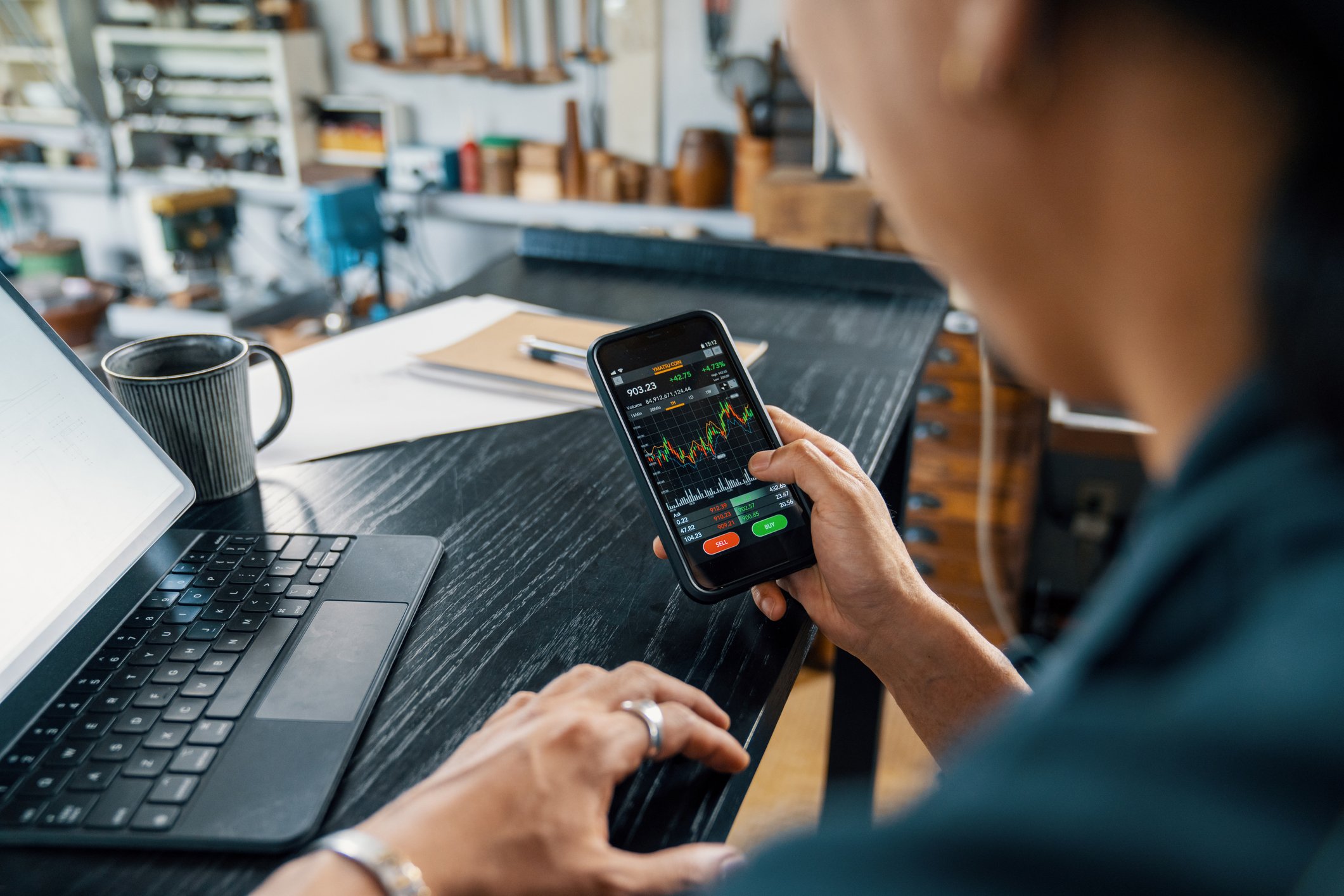It is desirable for a company you own to have a good business story. After all, you want to realistically believe that the business can grow, otherwise what's the point in owning it? But sometimes investors get so caught up in new stories that they place too high a valuation on untested businesses. That's why you might want to consider buying an old reliable like Mastercard (MA +0.83%) over an exciting upstart like Robinhood (HOOD 0.24%).
What does Robinhood do?
From a big-picture view, Robinhood is nothing more than a discount broker. However, that's not a fair explanation of the business. The company single handedly forced the industry to lower commissions to zero. It used technology to attract a new, younger customer group. And it has been aggressively expanding to include everything from stocks to exchange-traded funds to cryptocurrency.

NASDAQ: HOOD
Key Data Points
All in, the company is an innovator that is disrupting an old and boring business. That is a very attractive story and one that has taken Robinhood from an income statement bleeding red ink to one that is solidly in the black. And it has achieved this feat in a relatively short period of time, too. There are good reasons investors like Robinhood.
What does Mastercard do?
Mastercard is an industry disruptor, too. Or at least it was at one point in time. Today, the use of card payments instead of cash is a very common. But the transition isn't over yet and Mastercard is one of a small number of dominant companies that have the technology and customer base to support the ongoing move away from cash.

Image source: Getty Images.
The infrastructure that Mastercard has built is vital here. Essentially, it charges a small fee to process transactions that use cards with its logo on them. The more transactions that take place, the more money Mastercard makes. It has largely built out a mature network (there's still some growth opportunity abroad) so now the big story is the shift away from cash. That hasn't played itself out just yet so there's more growth to come. But the story behind Mastercard is old news, so it isn't as exciting anymore.
What's a good story worth?
This is where investor sentiment comes into play. Mastercard's growth opportunity is well known and its history of success is very clear. Investors have placed a high value on the stock -- it has a price-to-sales ratio of more than 17 and a price-to-earnings ratio of roughly 39. Those are very high valuation numbers but there's a small caveat. Both of those figures are actually below the five-year averages for each metric.
All in, Mastercard might be looked at as a growth at a reasonable price (GARP) type investment. While it isn't cheap, per se, the long history of growth suggests that it could still be a good opportunity for investors that think in decades and not days. After all, the story has stood the test of time, through bear markets as well as recessions.

NYSE: MA
Key Data Points
That same thing can't be said of Robinhood. In fact, the company didn't go public until after the coronavirus pandemic. There's no track record here when it comes to surviving adversity as a publicly traded company. But as a broker it is highly likely that a bear market and/or recession will be bad for the company's business. That's kind of how the industry works.
Which brings the story to the stock's valuation. Robinhood's P/S ratio is more than 37 and its P/E is nearly 75. Now consider competitor Charles Schwab, which has a P/S of about 8 and a P/E of about 25. Investors are baking a lot of good news into Robinhood's price (and much more than they are baking into Mastercard's price). And yet the company hasn't yet proven that it can live up to the high expectations when times get tough, which will eventually happen.
Err on the side of caution
Growth investing requires taking on educated risks. You are essentially paying a premium price in the expectation that a business will continue to grow robustly. Mastercard has proven it can do that regardless of what the world throws its way. Robinhood, which is being afforded a higher valuation, has not yet proven it has that kind of resilience as a business. Most investors will probably be better off sticking with the old hand by buying Mastercard.






